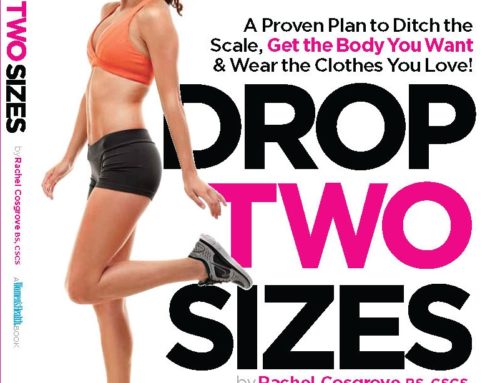Flashback to the 1990’s: Fat Free foods were all the rage. Fat free cookies and desserts lined the shelves. Food Marketers and health experts preached that our intake of fat is what was leading to cardiovascular disease and the obesity epidemic.
What happened? Americans became fatter than ever so that wasn’t the answer.

In the 2000’s everyone began to preach the evils of carbohydrates and enter the low carb phenomenon. People then decided to cut out all carbohydrates in favor of eggs, bacon, steaks, and other high fat protein sources.
What happened? People lost weight and also regained much of it once they went back to eating carbohydrates.
Low Fat or Low Carb
A recent study suggest that cutting down on carbs is a more effective strategy than limiting fat intake.
You can read the article in its entirety
hereParticipants in the study were given diets with similar caloric intake and after 1 year (take note of this) the individuals on the low carb diet lost 11.7 lbs while those on the low fat diet lost 3.9 lbs
One problem I have with studies is that many times they are done on a single type of population. There is no diversity in subjects which is not helpful to the general population. This study was conducted on a diverse population with an average age of 47, 50% were women, and half were Black. The participants checked in at 3, 6, and 12 months.
Results
As previously stated, the low carb group lost more weight (11.7 lbs vs. 3.9 lbs) but that wasn’t the only positive: Triglyceride levels fell in both groups but more so in the low carbohydrate diet.
LDL Cholesterol (The “bad” cholesterol) also fell in both groups.
The researchers concluded that “Restricting carbohydrates may be an option for persons who are seeking to lose weight and reduce cardiovascular risk factors and should be studied further,” they concluded.
I would like to point out that the study was conducted over a 12 month period. As I have said on this blog and as I teach my clients, it takes at least 1 year to see substantial LASTING fat loss because progress isn’t linear and it takes that amount of time to really change your lifestyle and habits.
In his book Good Calories, Bad Calories Gary Taubes makes the argument that it isn’t meats and fats that are causing heart disease and obesity, but a high sugar diet of refined cabrohydrates. This study supports Taubes findings and is another blow to the hypothesis of eating a low fat diet to prevent cardiovascular disease.
Real Life Tips for maximizing Carbohydrate intake
I do not advocate dropping all carbohydrates or going on an extreme diet such as Atkins. But I do coach clients to begin to think about their carbohydrate intake.
3 Ways to Maximize your Carbohydrate Intake
1. Avoid Processed Snack Foods
If a client begins to avoid processed foods, then that will substantially cut down on refined carbohyrates which are filled with sugars and other unnecessary products.
I also coach clients to throw out those diet friendly snack foods that food marketers tout as diet friendly. This would also include those terrible Special K chips and other “diet” foods that are marketed for weight control.First, you don’t feel like you’ve eaten anything and you INEVITABLY end up snacking even more. FORGET IT! You’re better off with some real food. Get rid of those low calorie processed snack items.
2. Front Load the day with Carbohydrates
Eat carbohydrate rich meals for your first and second meals of the day. I find that this will stabilize blood sugar and prevent those crashes that cause you to seek out the candy drawer at 3 p.m. You’re also a lot more likely to be active during the day than you are at night.
Ideas for Carbohydrate rich first 2 meals: Oatmeal, Grits, Ezekiel Toast, Whole Grain Cereals with lots of of fiber, Cream of Wheat, Whole Grain wraps, Brown Rice, Sandwiches on whole grain bread.
3. Make sure to eat enough protein and fat
I find that the reason most clients overdo the carbohydrates is because they are hungry! One way to combat this is to eat more protein and fat with each meal.
I often ask clients theoretically which would be easier to eat? 3 donuts or 3 chicken breasts.
Think about it: Why is it easier to eat 3 donuts rather than 3 chicken breasts? Chicken breasts have more protein and protein helps us to feel satisfied longer. Ask most people who eat these sad salads for lunch. They are hungry in 20 minutes!
The truth is in the middle
As I always like to remind clients, the truth is in the middle. Extreme diets on either side of the spectrum do not produce long term results. The key is to design a nutrition plan that you enjoy and is sustainable.
 In the 2000’s everyone began to preach the evils of carbohydrates and enter the low carb phenomenon. People then decided to cut out all carbohydrates in favor of eggs, bacon, steaks, and other high fat protein sources.
In the 2000’s everyone began to preach the evils of carbohydrates and enter the low carb phenomenon. People then decided to cut out all carbohydrates in favor of eggs, bacon, steaks, and other high fat protein sources.




Leave A Comment